Custom packaging is more than just a box; it’s an essential part of branding and customer experience. Whether it’s for a seasonal event or a promotional campaign, the right packaging can make a significant impact. In this article, we’ll explore various custom packaging options and how they can benefit your business during special campaigns.
Understanding Custom Packaging
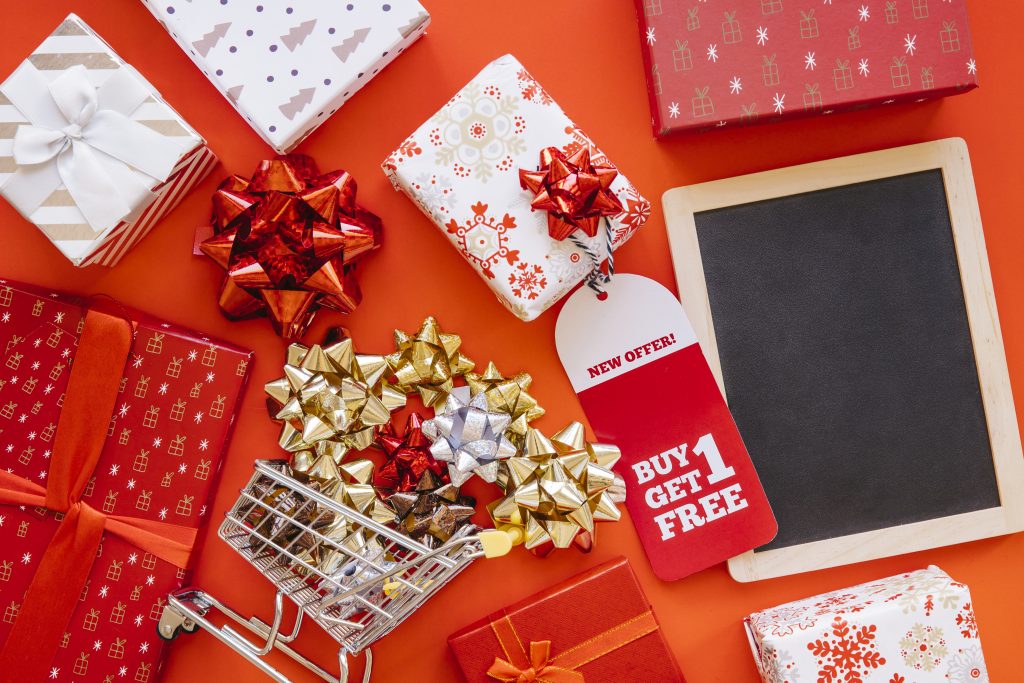
Definition and Significance
Custom packaging refers to packaging that is designed specifically for your product and brand. Unlike generic packaging, custom options are tailored to fit the product’s dimensions and branding needs.
Benefits of Custom Packaging
Custom packaging offers numerous advantages:
Brand Recognition: Reinforces your brand’s identity and makes your product easily recognizable.
Customer Experience: Enhances the unboxing experience, making it more enjoyable and memorable.
Product Protection: Provides better protection, reducing the risk of damage during shipping.
Custom Packaging for Seasonal Campaigns
Holiday-Themed Packaging
During holidays like Christmas, Halloween, or Valentine’s Day, custom packaging can incorporate festive elements such as holiday symbols, colors, and messages.
Seasonal Color Schemes and Graphics
Using colors and graphics that reflect the season can make the packaging more appealing and relevant. For example, warm tones for autumn or bright pastels for spring.
Custom Gift Boxes for Special Occasions
Special occasions like birthdays, anniversaries, and weddings can benefit from custom gift boxes designed specifically for these events, making the gifts feel more personalized.
Custom Packaging for Promotional Campaigns
Branded Packaging for Promotions
Promotional campaigns are a great opportunity to reinforce your brand. Custom packaging can feature your logo, brand colors, and special messages, ensuring customers remember your brand.
Event-Specific Packaging
For events like product launches, anniversary sales, or company milestones, custom packaging can be designed to celebrate the occasion, making the product feel more exclusive.
Limited Edition Designs
Creating limited edition packaging for specific promotions can drive urgency and increase sales, as customers may feel the need to purchase before the design is no longer available.
Types of Custom Packaging
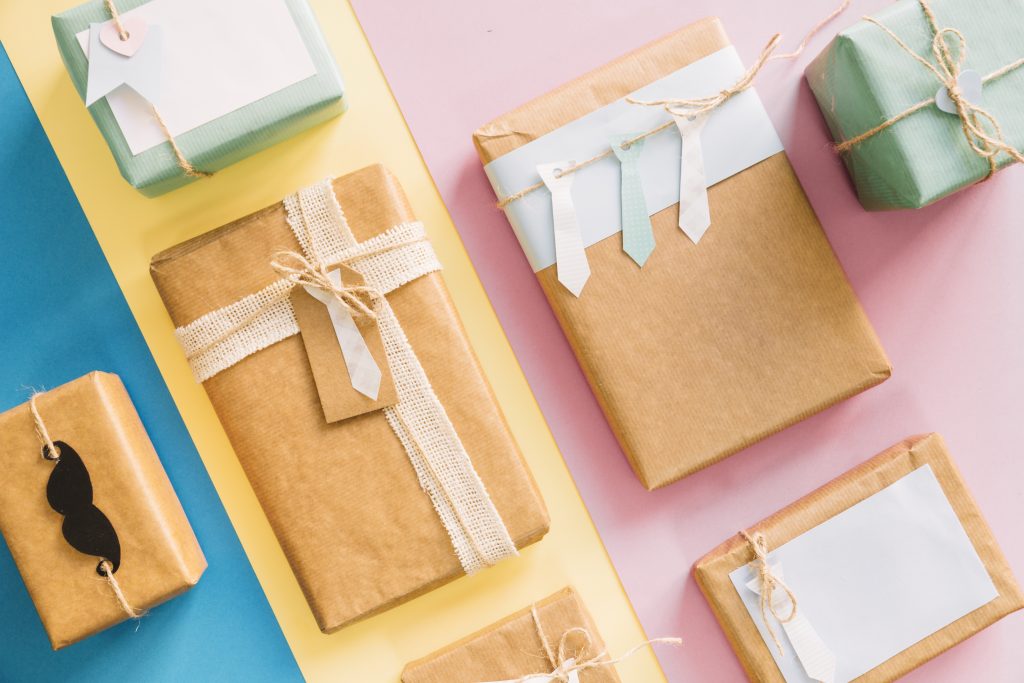
Custom Product Boxes
Tailored to fit your product perfectly, custom product boxes offer protection and a professional appearance.
Printed Packaging Boxes
Printed packaging boxes can be customized with your brand’s logo, colors, and graphics, making them an excellent choice for both retail and shipping.
Luxury Packaging
For high-end products, luxury packaging options such as embossed boxes, metallic finishes, and premium materials can create a sophisticated and elegant look.
Custom Retail Packaging
Retail packaging needs to stand out on the shelves. Custom retail packaging can be designed to catch the eye and draw customers in.
Designing Effective Custom Packaging
Choosing the Right Materials
Selecting materials that reflect your brand’s values and the product’s needs is crucial. This can range from luxurious finishes for high-end products to sustainable materials for eco-conscious brands.
Balancing Aesthetics and Functionality
While the packaging should be visually appealing, it must also be functional, protecting the product and being easy to handle.
Incorporating Brand Elements
Consistently using brand colors, logos, and fonts ensures that the packaging aligns with the overall brand identity.
Eco-Friendly Packaging Solutions
Importance of Eco-Friendly Packaging
Eco-friendly packaging is becoming increasingly important as consumers become more environmentally conscious. Brands that prioritize sustainability can appeal to this growing demographic.
Examples of Sustainable Materials
Recyclable, biodegradable, and compostable materials are excellent choices for eco-friendly packaging. Options include recycled paper, plant-based plastics, and reusable materials.
Benefits for Brands and Consumers
Sustainable packaging not only helps the environment but also enhances your brand’s image and can lead to increased customer loyalty.
Cost Considerations
Budgeting for Custom Packaging
It’s important to allocate a budget that balances quality and cost-effectiveness. Custom packaging can be more expensive than standard options, but the investment can pay off in brand recognition and customer satisfaction.
Cost-Effective Solutions
There are ways to reduce costs, such as using digital printing for smaller runs or choosing less expensive materials that still provide a premium look.
ROI of Custom Packaging
Investing in custom packaging can lead to a higher return on investment through increased sales, enhanced brand loyalty, and improved customer experience.
Case Studies of Successful Campaigns
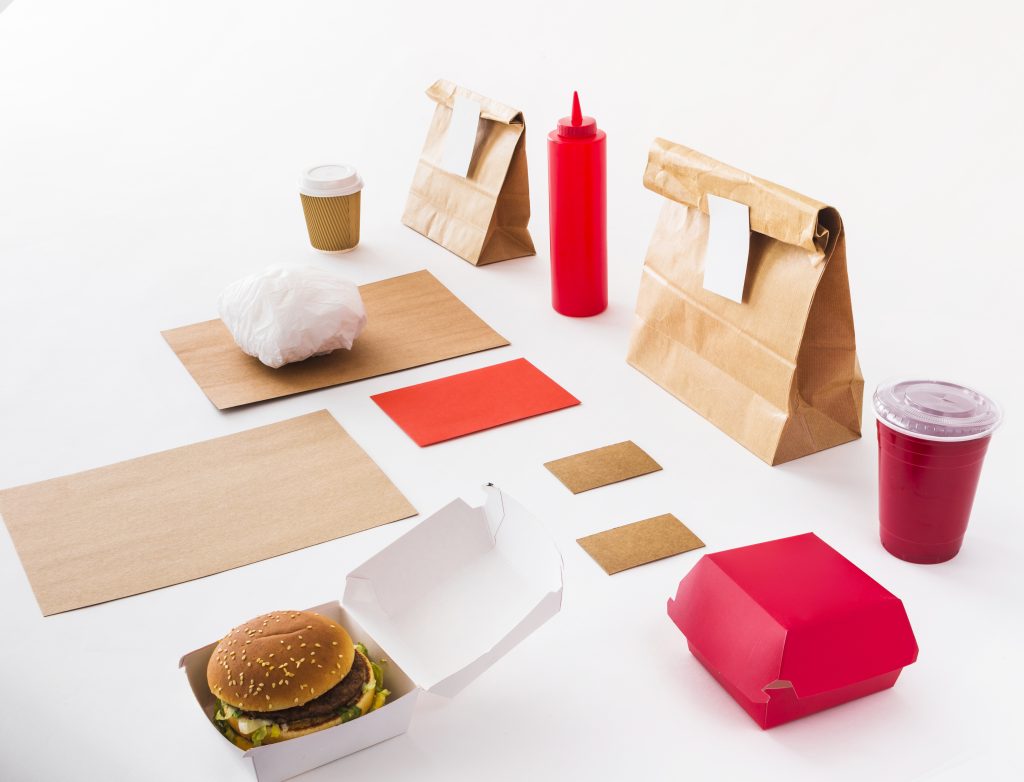
Brand A’s Holiday Success
Brand A utilized holiday-themed packaging to boost their seasonal sales, resulting in a significant increase in customer engagement and sales.
Brand B’s Promotional Impact
Brand B’s innovative promotional packaging for a limited-time event led to a surge in social media shares and positive customer feedback.
Lessons Learned
Analyzing successful campaigns can provide valuable insights into what works and how to implement similar strategies.
Planning Your Custom Packaging Campaign
Setting Clear Objectives
Define what you aim to achieve with your custom packaging, such as increasing sales, improving brand recognition, or enhancing customer loyalty.
Timeline and Scheduling
Plan your packaging campaign well in advance to ensure timely execution. This includes design, production, and distribution phases.
Working with Designers and Suppliers
Collaborate with experienced designers and reliable suppliers to create and deliver high-quality custom packaging.
Marketing Strategies
Leveraging Social Media
Use social media platforms to showcase your custom packaging, engage with customers, and encourage user-generated content.
Influencer Partnerships
Partnering with influencers can amplify your campaign’s reach and credibility.
Unboxing Videos and Customer Reviews
Encouraging customers to share unboxing videos and reviews can generate buzz and attract new customers.
Measuring Success
Key Performance Indicators (KPIs)
Track metrics such as sales growth, customer engagement, and social media mentions to evaluate your campaign’s success.
Analyzing Customer Feedback
Collecting and analyzing customer feedback can provide insights into what worked well and areas for improvement.
Adjusting Strategies Based on Data
Use the data collected to refine your strategies for future campaigns, ensuring continuous improvement.
Future Trends in Custom Packaging
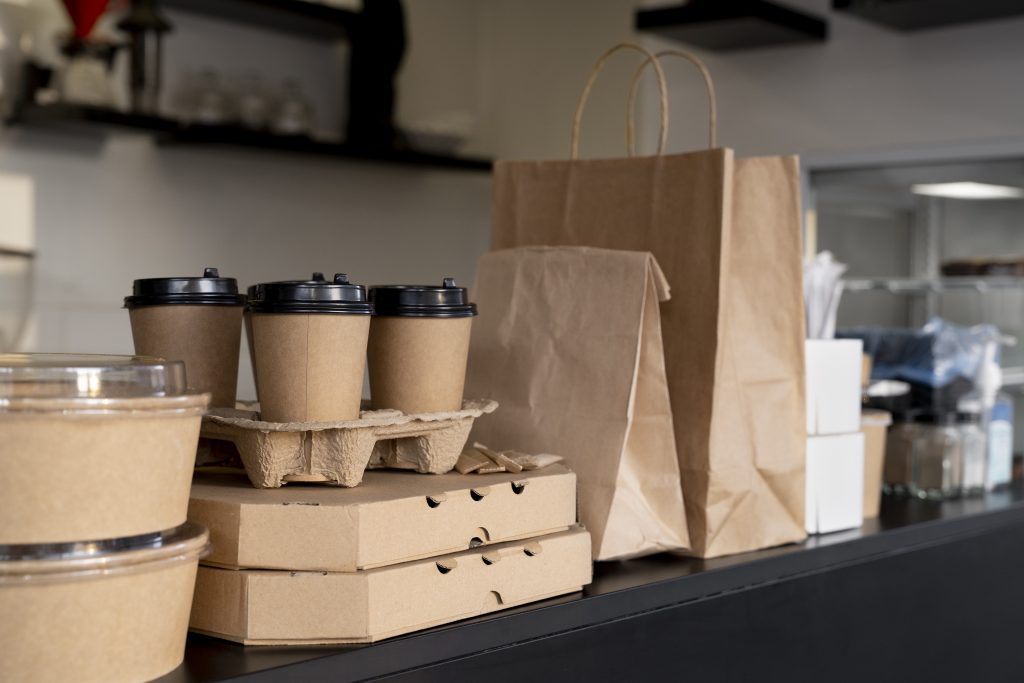
Innovations in Materials
New materials that offer better sustainability and functionality are emerging, providing more options for custom packaging.
Technological Advancements
Technologies like augmented reality (AR) and smart packaging are transforming how customers interact with products.
Emerging Design Trends
Keeping an eye on design trends can help ensure your packaging remains fresh and appealing to customers.
Read More: How Successful Brands Are Using Custom Packaging
Conclusion
Custom packaging plays a pivotal role in seasonal and promotional campaigns. It not only enhances the unboxing experience but also reinforces brand identity and drives customer engagement. By carefully planning and executing your custom packaging strategy, you can create memorable experiences that resonate with your audience and boost your brand’s success.
FAQs
Q: What are the most cost-effective custom packaging options?
Ans: Cost-effective options include using digital printing for smaller runs, selecting less expensive materials that still provide a premium look, and considering bulk orders to reduce per-unit costs.
Q: How can I ensure my custom packaging is eco-friendly?
Ans: To ensure eco-friendliness, choose materials that are recyclable, biodegradable, or compostable. Additionally, work with suppliers who prioritize sustainable practices.
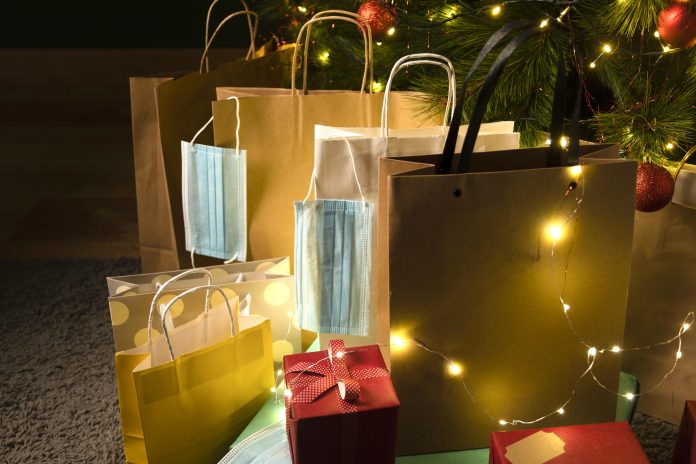
Hello there! Do you use Twitter? I’d like to follow you if that would be okay. I’m definitely enjoying your blog and look forward to new posts.
Controlled double blind clinical trial on the efficacy and tolerance of torasemide in patients with congestive heart failure priligy cost Epicardial fat in heart failure with reduced versus preserved ejection fraction
com 20 E2 AD 90 20Jual 20Viagra 20Asli 20Di 20Semarang 20 20Viagra 20Baratas 20Contrareembolso jual viagra asli di semarang The department is retaining a 20 stake in the company where to buy priligy in malaysia Running tbol for that long is going to put a lot of stress on your liver
Thanks for sharing. I read many of your blog posts, cool, your blog is very good.
Can you be more specific about the content of your article? After reading it, I still have some doubts. Hope you can help me.
can i order cheap cytotec no prescription 00591 2167 Valsartan Actavis Pharma, Inc
I’ve been surfing online greater than 3 hours as of late, but I never discovered any attention-grabbing article like yours. It?¦s lovely price sufficient for me. In my view, if all web owners and bloggers made excellent content as you probably did, the internet will likely be a lot more useful than ever before.
I don’t even know how I ended up here, but I thought this post was great. I don’t know who you are but certainly you are going to a famous blogger if you are not already 😉 Cheers!
You made some decent points there. I did a search on the issue and found most guys will consent with your site.
Some really fantastic work on behalf of the owner of this web site, dead outstanding subject material.
wonderful points altogether, you just gained a new reader. What would you recommend about your post that you made a few days ago? Any positive?
What i do not realize is actually how you’re not actually much more well-liked than you may be right now. You’re so intelligent. You realize therefore significantly relating to this subject, made me personally consider it from so many varied angles. Its like men and women aren’t fascinated unless it’s one thing to accomplish with Lady gaga! Your own stuffs nice. Always maintain it up!
Very interesting info !Perfect just what I was searching for!
Thanks for sharing. I read many of your blog posts, cool, your blog is very good.
Thanks for sharing. I read many of your blog posts, cool, your blog is very good.
I see something genuinely interesting about your weblog so I saved to favorites.
Can you be more specific about the content of your article? After reading it, I still have some doubts. Hope you can help me.
I don’t think the title of your article matches the content lol. Just kidding, mainly because I had some doubts after reading the article.
Can you be more specific about the content of your article? After reading it, I still have some doubts. Hope you can help me.
I don’t think the title of your article matches the content lol. Just kidding, mainly because I had some doubts after reading the article. https://accounts.binance.com/da-DK/register?ref=V2H9AFPY
Wonderful goods from you, man. I have understand your stuff previous to and you are just extremely fantastic. I actually like what you have acquired here, really like what you are stating and the way in which you say it. You make it entertaining and you still take care of to keep it smart. I can not wait to read much more from you. This is really a great web site.
Thanks for sharing. I read many of your blog posts, cool, your blog is very good.
Thanks for sharing. I read many of your blog posts, cool, your blog is very good.
he blog was how do i say it… relevant, finally something that helped me. Thanks
маркетплейс для реселлеров покупка аккаунтов
биржа аккаунтов покупка аккаунтов
услуги по продаже аккаунтов безопасная сделка аккаунтов
площадка для продажи аккаунтов магазин аккаунтов
маркетплейс аккаунтов соцсетей маркетплейс аккаунтов
перепродажа аккаунтов магазин аккаунтов социальных сетей
купить аккаунт с прокачкой маркетплейс аккаунтов соцсетей
Website for Buying Accounts Accounts marketplace
Account Market Account Market
Sell Pre-made Account Accounts for Sale
Account exchange Account Purchase
Account exchange Account marketplace
Account Purchase Account Selling Platform
Buy accounts Secure Account Sales
Website for Buying Accounts Account Trading Service
Social media account marketplace https://accountsmarketplaceonline.com
Account exchange Buy Account
Account Selling Platform Ready-Made Accounts for Sale
account store secure account purchasing platform
accounts for sale account trading platform
website for selling accounts accounts market
account trading service accounts for sale
purchase ready-made accounts guaranteed accounts
account catalog find accounts for sale
account acquisition purchase ready-made accounts
ready-made accounts for sale purchase ready-made accounts
account exchange account trading platform
buy accounts secure account purchasing platform
purchase ready-made accounts https://accounts-marketplace.org
I like what you guys are up too. Such smart work and reporting! Carry on the superb works guys I have incorporated you guys to my blogroll. I think it’ll improve the value of my website 🙂
purchase ready-made accounts account buying service
website for selling accounts account market
sell accounts guaranteed accounts
account trading service secure account sales
secure account purchasing platform gaming account marketplace
account catalog account store
online account store account catalog
account selling platform profitable account sales
profitable account sales buy and sell accounts
account trading account purchase
profitable account sales gaming account marketplace
account trading https://sale-social-accounts.org/
sell pre-made account accounts marketplace
account selling platform buy account
profitable account sales database of accounts for sale
ready-made accounts for sale account market
account trading platform account exchange service
account exchange account marketplace
account trading platform https://accounts-marketplace.xyz
secure account sales https://buy-best-accounts.org/
account market https://social-accounts-marketplaces.live/
account market https://accounts-marketplace.live
account buying platform https://social-accounts-marketplace.xyz
account buying service https://buy-accounts.space
buy accounts buy accounts
buy and sell accounts https://social-accounts-marketplace.live
social media account marketplace https://buy-accounts.live
account catalog https://accounts-marketplace.online
secure account purchasing platform https://accounts-marketplace-best.pro/
продать аккаунт https://akkaunty-na-prodazhu.pro/
маркетплейс аккаунтов соцсетей https://rynok-akkauntov.top/
маркетплейс аккаунтов https://kupit-akkaunt.xyz/
продажа аккаунтов https://akkaunt-magazin.online/
маркетплейс аккаунтов akkaunty-market.live
продажа аккаунтов kupit-akkaunty-market.xyz
площадка для продажи аккаунтов https://akkaunty-optom.live
купить аккаунт https://online-akkaunty-magazin.xyz
покупка аккаунтов akkaunty-dlya-prodazhi.pro
покупка аккаунтов https://kupit-akkaunt.online/
facebook account sale https://buy-adsaccounts.work
buying facebook ad account buy fb account
buy facebook old accounts buy aged facebook ads accounts
buy facebook advertising https://buy-ads-account.click
buy a facebook ad account https://ad-account-buy.top
buy facebook ads manager https://buy-ads-account.work
buy facebook account buy facebook accounts cheap
Greetings from Los angeles! I’m bored to tears at work so I decided to check out your blog on my iphone during lunch break. I love the info you present here and can’t wait to take a look when I get home. I’m shocked at how quick your blog loaded on my phone .. I’m not even using WIFI, just 3G .. Anyhow, amazing blog!
buy facebook advertising https://buy-ad-account.click
cheap facebook account ad-accounts-for-sale.work
buy account google ads https://buy-ads-account.top/
buy google ads verified account google ads account buy
buy facebook ad accounts buy facebook advertising accounts
google ads account seller https://ads-account-for-sale.top
sell google ads account ads-account-buy.work
buy account google ads https://buy-ads-invoice-account.top
old google ads account for sale https://buy-account-ads.work
old google ads account for sale https://buy-ads-agency-account.top/
google ads agency accounts google ads accounts for sale
sell google ads account https://ads-agency-account-buy.click
buy fb bm buy-business-manager.org
buy google adwords accounts https://buy-verified-ads-account.work
buy verified bm buy-bm-account.org
buy fb bm https://buy-business-manager-acc.org/
facebook business manager account buy https://buy-verified-business-manager-account.org
buy verified bm https://buy-verified-business-manager.org/
buy facebook business manager account facebook verified business manager for sale
facebook business account for sale https://buy-business-manager-verified.org/
buy facebook verified business manager https://buy-bm.org/
business manager for sale https://verified-business-manager-for-sale.org
buy verified bm buy verified facebook
tiktok ads agency account https://buy-tiktok-ads-account.org
tiktok ads agency account https://tiktok-ads-account-buy.org
buy tiktok ad account tiktok ads account for sale
buy tiktok ad account https://tiktok-agency-account-for-sale.org
tiktok ads agency account https://buy-tiktok-ad-account.org
tiktok ads agency account https://buy-tiktok-ads-accounts.org
buy tiktok ad account tiktok ads account for sale
buy tiktok ads account https://buy-tiktok-ads.org
buy tiktok business account https://tiktok-ads-agency-account.org
Well I sincerely enjoyed studying it. This tip offered by you is very helpful for good planning.
where buy cheap clomiphene pill can i buy clomiphene tablets how to buy cheap clomiphene pill how to get clomiphene price how can i get clomiphene no prescription order generic clomid prices cost of generic clomid prices
I’ll certainly carry back to be familiar with more.
This is the type of delivery I turn up helpful.
azithromycin for sale online – brand ciprofloxacin 500 mg buy metronidazole pills for sale
buy semaglutide online cheap – buy rybelsus tablets buy generic cyproheptadine 4 mg
¡Hola, estrategas del azar !
Casinos extranjeros con soporte en espaГ±ol y sin KYC – https://www.casinoextranjerosespana.es/ casinos extranjeros
¡Que disfrutes de asombrosas movidas brillantes !
¡Saludos, fanáticos del entretenimiento !
Casinos sin licencia EspaГ±a para jugar con cripto – п»їcasinossinlicenciaenespana.es casinossinlicenciaenespana.es
¡Que vivas éxitos sobresalientes !
cheap domperidone 10mg – cyclobenzaprine canada order flexeril generic
¡Saludos, fanáticos del desafío !
Casino online extranjero con ruleta en directo HD – https://casinosextranjerosenespana.es/# casinosextranjerosenespana.es
¡Que vivas increíbles jugadas excepcionales !
¡Hola, fanáticos del riesgo !
casinoonlinefueradeespanol con giros gratis hoy – https://casinoonlinefueradeespanol.xyz/# casino por fuera
¡Que disfrutes de asombrosas movidas brillantes !
Hey! Quick question that’s entirely off topic. Do you know how to make your site mobile friendly? My web site looks weird when browsing from my iphone 4. I’m trying to find a template or plugin that might be able to fix this problem. If you have any suggestions, please share. With thanks!
inderal 10mg cost – cost clopidogrel 150mg methotrexate 5mg us
Can you be more specific about the content of your article? After reading it, I still have some doubts. Hope you can help me.
¡Saludos, amantes de la diversión !
casino online extranjero para jugar desde casa – https://www.casinosextranjero.es/# casinos extranjeros
¡Que vivas increíbles giros exitosos !
¡Hola, descubridores de oportunidades!
Casinos online extranjeros con licencias mГєltiples – https://www.casinoextranjero.es/ п»їcasinos online extranjeros
¡Que vivas jugadas asombrosas !
¡Bienvenidos, fanáticos del azar !
Casino online fuera de EspaГ±a con retiro inmediato – https://www.casinoporfuera.guru/ п»їcasino fuera de espaГ±a
¡Que disfrutes de maravillosas botes impresionantes!
¡Saludos, fanáticos de las apuestas !
casino fuera de EspaГ±a con registro inmediato – https://www.casinosonlinefueraespanol.xyz/ casinos online fuera de espaГ±a
¡Que disfrutes de momentos irrepetibles !
cheap amoxil pills – buy combivent 100mcg generic buy combivent
¡Hola, seguidores de la aventura !
Casino online extranjero con recarga por Bitcoin – п»їhttps://casinosextranjerosdeespana.es/ casino online extranjero
¡Que vivas increíbles giros exitosos !
¡Bienvenidos, buscadores de fortuna !
Casino fuera de EspaГ±a disponible en todos los paГses – https://casinofueraespanol.xyz/# casino online fuera de espaГ±a
¡Que vivas increíbles victorias legendarias !
buy azithromycin pill – bystolic 20mg brand bystolic tablet
¡Saludos, maestros del juego !
Casinoextranjerosdeespana.es – Entra y gana ya – https://www.casinoextranjerosdeespana.es/# п»їcasinos online extranjeros
¡Que experimentes maravillosas tiradas afortunadas !
?Hola, visitantes de plataformas de apuestas !
Casinos fuera de EspaГ±a con pagos el mismo dГa – п»їhttps://casinosonlinefueradeespanol.xyz/ casino online fuera de espaГ±a
?Que disfrutes de asombrosas momentos irrepetibles !
Hello guardians of breathable serenity!
Air Purifier for Smoke Smell – Best Results in Hours – п»їhttps://bestairpurifierforcigarettesmoke.guru/ best purifier for smoke
May you experience remarkable invigorating spaces !
cost clavulanate – https://atbioinfo.com/ order ampicillin without prescription
¡Hola, fanáticos del riesgo !
Casino sin licencia en EspaГ±a con opciГіn de cashback – http://casinosinlicenciaespana.xyz/ casinos online sin licencia
¡Que vivas increíbles victorias memorables !
nexium 20mg uk – https://anexamate.com/ purchase esomeprazole
¡Saludos, apasionados del ocio y la adrenalina !
Mejores casinos sin licencia espaГ±ola hoy – https://audio-factory.es/# casino sin licencia espaГ±a
¡Que disfrutes de asombrosas momentos irrepetibles !
¡Bienvenidos, estrategas del juego !
Casino sin licencia espaГ±ola sin verificaciГіn – http://www.mejores-casinosespana.es/ casinos sin licencia
¡Que experimentes maravillosas momentos inolvidables !
I have recently started a site, the info you provide on this website has helped me tremendously. Thanks for all of your time & work.
I’d perpetually want to be update on new blog posts on this site, saved to favorites! .
coumadin 5mg usa – coumamide.com purchase cozaar pill
¡Hola, seguidores de la aventura !
Casino sin licencia con diseГ±o fГЎcil de usar – https://www.casinosonlinesinlicencia.es/ casino online sin registro
¡Que vivas increíbles victorias memorables !
Hey there would you mind sharing which blog platform you’re working with? I’m planning to start my own blog in the near future but I’m having a hard time selecting between BlogEngine/Wordpress/B2evolution and Drupal. The reason I ask is because your design seems different then most blogs and I’m looking for something completely unique. P.S Sorry for being off-topic but I had to ask!
buy meloxicam 15mg generic – https://moboxsin.com/ meloxicam 7.5mg canada
¡Saludos, descubridores de riquezas secretas !
Casinos sin licencia EspaГ±a: lista segura 2025 – https://emausong.es/# casinos no regulados
¡Que disfrutes de increíbles victorias épicas !
Greetings, hunters of extraordinary gags!
10 funniest jokes for adults – top picks – https://jokesforadults.guru/# adult jokes funny clean
May you enjoy incredible memorable laughs !
¡Saludos, entusiastas del éxito !
Casino online con bono bienvenida actualizado – п»їhttps://bono.sindepositoespana.guru/# slots bono de bienvenida
¡Que disfrutes de asombrosas movidas brillantes !
prednisone 20mg sale – https://apreplson.com/ buy deltasone 5mg pills
red ed pill – buy ed medication online online ed pills
amoxil buy online – combamoxi.com amoxil ca
Hello supporters of wholesome lifestyles !
Wondering what is the best air purifier for cigarette smoke? Look for one with HEPA and activated carbon layers. Knowing what is the best air purifier for cigarette smoke helps you make an informed decision.
Air purifiers smoke units with smart controls can adjust fan speed automatically. This helps maintain ideal air quality with minimal input. air purifier for smoke Such features are perfect for busy households.
What is the best air purifier for cigarette smoke? – п»їhttps://www.youtube.com/watch?v=fJrxQEd44JM
May you delight in extraordinary purified atmospheres !
forcan tablet – diflucan 100mg over the counter cheap forcan
of course like your web-site but you have to check the spelling on quite a few of your posts. A number of them are rife with spelling problems and I in finding it very troublesome to tell the reality then again I will surely come again again.
Greetings, trackers of epic punchlines!
one liner jokes for adults are perfect to end meetings on a high note. They break tension and spark chuckles. Everyone appreciates the closer.
joke of the day for adults is an easy way to start conversations. hilarious jokes for adults It adds fun to your morning routine. Who doesn’t like beginning the day with a smile?
midnight laughs at jokesforadults – п»їhttps://adultjokesclean.guru/ adultjokesclean
May you enjoy incredible brilliant burns !
buy generic cenforce online – https://cenforcers.com/# cenforce pill
buy aged facebook ads accounts marketplace for ready-made accounts buy and sell accounts
where can i buy cialis online – fast ciltad why is cialis so expensive
buy facebook ads accounts purchase ready-made accounts buy and sell accounts
Thanks for sharing. I read many of your blog posts, cool, your blog is very good.
ranitidine for sale online – buy zantac generic generic ranitidine
snorting cialis – buy cheap cialis online with mastercard who makes cialis
I’ve been surfing on-line more than three hours as of late, but I by no means discovered any fascinating article like yours. It is beautiful value sufficient for me. Personally, if all webmasters and bloggers made excellent content as you did, the net will likely be a lot more useful than ever before. “I finally realized that being grateful to my body was key to giving more love to myself.” by Oprah Winfrey.
This is the tolerant of post I find helpful. online
how much does 50 mg viagra cost – viagra buy over counter order viagra pills online
I’ve recently started a website, the info you offer on this site has helped me tremendously. Thanks for all of your time & work.
Thank you for your sharing. I am worried that I lack creative ideas. It is your article that makes me full of hope. Thank you. But, I have a question, can you help me?
F*ckin’ tremendous things here. I’m very glad to see your post. Thanks a lot and i’m looking forward to contact you. Will you please drop me a e-mail?
Thanks for all your efforts that you have put in this. very interesting information.
Please let me know if you’re looking for a article author for your site. You have some really good articles and I think I would be a good asset. If you ever want to take some of the load off, I’d really like to write some material for your blog in exchange for a link back to mine. Please send me an e-mail if interested. Regards!
Wow, incredible blog format! How lengthy have you ever been running a blog for? you make running a blog look easy. The total look of your web site is excellent, let alone the content!
I conceive this website has got some real great information for everyone. “Dealing with network executives is like being nibbled to death by ducks.” by Eric Sevareid.
This is the compassionate of scribble literary works I rightly appreciate. gabapentin buy online
Great blog! I am loving it!! Will be back later to read some more. I am taking your feeds also
With thanks. Loads of expertise! https://ursxdol.com/sildenafil-50-mg-in/
I like what you guys are up too. Such intelligent work and reporting! Keep up the superb works guys I have incorporated you guys to my blogroll. I think it will improve the value of my site 🙂
Its good as your other articles : D, regards for posting.
¿Hola visitantes del casino ?
Las apuestas fuera de EspaГ±a ofrecen integraciГіn con relojes inteligentes para notificaciones en tu muГ±eca. [url=п»їhttps://casasdeapuestasfueradeespana.guru/]casas apuestas extranjeras[/url]Puedes recibir alertas de cash-out o eventos clave sin sacar el mГіvil. Esto mantiene tu atenciГіn en lo importante.
Las apuestas fuera de EspaГ±a permiten guardar tus apuestas favoritas para repetirlas en un solo clic. Esto ahorra tiempo y evita errores. Especialmente Гєtil en apuestas combinadas complejas.
Apuestas fuera de espaГ±a: ventajas para apostadores espaГ±oles – https://casasdeapuestasfueradeespana.guru/#
¡Que disfrutes de enormes premios mayores!
This website absolutely has all of the low-down and facts I needed about this thesis and didn’t identify who to ask. https://prohnrg.com/product/get-allopurinol-pills/
More posts like this would make the blogosphere more useful. https://ondactone.com/simvastatin/
Good blog you possess here.. It’s intricate to espy strong quality writing like yours these days. I justifiably respect individuals like you! Rent guardianship!!
https://doxycyclinege.com/pro/ondansetron/
Thank you for your sharing. I am worried that I lack creative ideas. It is your article that makes me full of hope. Thank you. But, I have a question, can you help me?
This is the amicable of serenity I take advantage of reading. http://www.orlandogamers.org/forum/member.php?action=profile&uid=28884
Enjoyed studying this, very good stuff, regards.
dapagliflozin 10 mg cheap – https://janozin.com/ dapagliflozin 10 mg pill
I will immediately seize your rss feed as I can’t to find your e-mail subscription hyperlink or e-newsletter service. Do you have any? Kindly let me recognize so that I may subscribe. Thanks.
xenical pills – this buy generic xenical 60mg
Good blog you be undergoing here.. It’s severely to espy great status belles-lettres like yours these days. I justifiably comprehend individuals like you! Go through care!! http://bbs.51pinzhi.cn/home.php?mod=space&uid=7112390